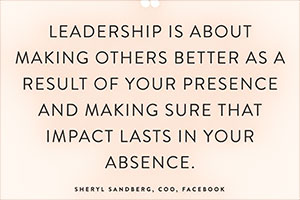 From comic books to princess stories, we’re conditioned from an early age to value the role heroes play in the world. They magically appear, solve all the problems, flash a smile, then move on to the next crisis. The story of the original crisis and how it was solved grows bigger each time it is shared, and eventually, the hero reaches legendary status. There are no movies about the princess who didn’t need to be rescued because her castle was built so that the walls couldn’t be breached.
From comic books to princess stories, we’re conditioned from an early age to value the role heroes play in the world. They magically appear, solve all the problems, flash a smile, then move on to the next crisis. The story of the original crisis and how it was solved grows bigger each time it is shared, and eventually, the hero reaches legendary status. There are no movies about the princess who didn’t need to be rescued because her castle was built so that the walls couldn’t be breached.
The same story is true in organizations that fall into the trap of hero syndrome. When leaders receive an inordinate amount of attention and praise for fixing a crisis, it signals to others that the way to get noticed and appreciated in the organization is to save the day on a major problem. This is a dangerous precedent to set and is difficult to reverse. Because a number of factors may play a part in contributing to hero syndrome, it’s critical to identify the root cause of the problem.
1) Skills gap. Leaders may actually be required to jump in and save the day because errors are made frequently. When decisions are made without considering consequences, and a plan is crafted without a strategy, it’s no surprise that a hero must be called upon to bail the team out frequently. This signals that the problem is less about a culture of rewarding heroes, but more about the team’s lack of direction, strategic thinking, and decision making. In this case, it’s helpful to take stock of the strengths and development areas of the team to identify and address the key skills gaps contributing to the crisis culture.
2) Lack of delegation and empowerment. When leaders repeatedly tell dramatic stories of pulling all-nighters and single-handedly re-working slide decks, proposals, etc, it’s possible the root cause isn’t a skills gap on the team at all. The problem may lie with the leader’s lack of delegation and/or empowerment of their team. In spite of the team’s abilities, the leader may be unable to release control, coach, and develop their team. In this case, the leader needs to develop their talent management competency. Learning how to coach from the sidelines is a skill many high performers turned leaders lack.
3) Lack of visibility. In large organizations, leaders from certain operational areas or projects may feel invisible without inventing dramatic stories to get attention. Additionally, some organizations implicitly reward this behavior by only promoting individuals who work until the lights are turned off each night. These individuals are labeled hard workers who show their commitment, and therefore are labeled high potential without any investigation into whether this extreme work schedule is even necessary. This sets a dangerous precedent and opens the door to leaders who feel it’s necessary to invent problems so they can play the role of hero.
4) Broken reward system. When organizations fail to structure reward systems around positive behaviors (like strategic thinking, planning, and talent development), then other behaviors fill the gaps. Traditionally, what gets measured gets rewarded, but if positive behaviors aren’t measured then what gets attention gets rewarded. Organizations that reward accuracy, risk calculation, forecasting, and project management milestones experience fewer instances of hero syndrome, because the definition of success is clear.
When stories of heroic acts become the norm, something is broken and must be fixed. Although much less exciting, stable, steady, and predictable are much more valuable traits than crisis solving.
